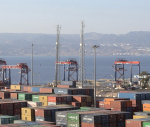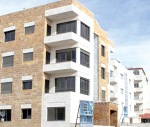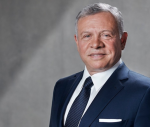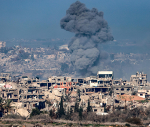You are here
IS and the Assad regime
Aug 26,2014 - Last updated at Aug 26,2014
For the first time since the break out of the Syrian crisis, in March 2011, there are indications that policies towards the Damascus regime are about to change drastically.
That is not because President Bashar Assad altered his position since the uprising against him or vis-à-vis the Syrian National Coalition (SNC) in exile. And it is not because Assad’s forces have made a military breakthrough on the ground.
It is the growing threat of the Islamic State that is forcing all players, both regional and international, to revise their policies.
The dramatic rise of IS over the past few years has become a game changer not only in Iraq, where IS spread its control over most of the Sunni governorates and threatened Iraqi Kurdistan, but in Syria as well.
On Monday, IS fighters took over the strategic military airport of Tabqa, in Raqqa governorate, in eastern Syria, dealing a stunning defeat to Assad’s forces.
The entire governorate, twice the size of Lebanon, is now under the control of IS. Its forces are present in Der Al Zour and expelled other rebel fighters from many towns and villages in eastern and northern Syria.
For years, Assad claimed that he was fighting Islamist terrorists in Syria on behalf of the region and the world. The US, which, earlier this month, started bombing IS positions in northern Iraq, is said to be considering hitting its strongholds in Syria as well.
Last week, US Secretary of Defence Chuck Hagel warned that the Islamic extremists who executed American journalist James Foley are “beyond just a terrorist group”, and even “beyond anything that we’ve seen”.
Earlier, US Gen. Martin Dempsey had said that once he determines that the IS militants in Iraq have become a direct threat to the US homeland, he will recommend that the US military move directly against the group in Syria.
British Prime Minister David Cameron said IS must be stopped and UK should be prepared to use military prowess against it.
Since IS swept through northern Iraq earlier this year, taking the city of Mosul and forcing hundreds of thousands of Iraqi Christians and other minorities to flee to Kurdistan, attention to the Syrian civil war began to wane.
Attempts to find a political solution to the Syrian crisis, through talks in Geneva, failed.
The UN and others suspended their diplomatic efforts, and the fighting on the ground continued, with the death toll reaching more than 190,000 by the end of July.
Government forces made some breakthroughs in Homs and Aleppo, while the Free Syrian Army retook some positions in Al Qalamoun, but IS has been spreading quietly its control over much of eastern Syria, emerging as the most potent and organised power in the field.
The West continued to debate whether to arm the so-called moderate rebel forces in Syria and there were reports that France recently supplied the Free Syrian Army with sophisticated weapons.
US President Barack Obama was criticised by opponents for his poor Syria policy and refusal to arm the rebels, which allowed IS to grow and become more lethal.
With the West now moving to quell IS in Iraq without committing land troops, attention is focusing again on Syria. This time, there are signs that collaboration with Damascus would be possible in order to deal with IS.
It was probably ironic that Russian Foreign Minister Sergei Lavrov said on Monday that Syria itself should be included in the Friends of Syria group and that the West should reconsider its policy towards Assad.
And on Monday, Syria’s Foreign Minister Walid Al Mouallem said his country welcomed any potential military strikes by the US in Syria targeting the IS’ terrorist bases, but warned that this should be done in coordination with the Syrian government.
He said that aerial bombing alone would not end the IS threat and called on Syria’s neighbours to change their policy towards his country.
These developments forced the Arab members of the Friends of Syria to meet in Jeddah earlier this week, apparently to discuss possible changes in the policy towards Damascus. Little information came out of that meeting.
The IS threat is being felt by Saudi Arabia, Jordan, Egypt and even Iran. The latter sent its deputy foreign minister to Riyadh on Monday in the first visit of a senior Iranian government official to Saudi Arabia since the June 2013 election of President Hassan Rouhani.
It is still early to assess if combining regional and international efforts to fight IS will lead to the rehabilitation of the Assad regime, but it is clear that priorities have changed and Damascus is feeling less isolated today as a result.
The writer is a journalist and political commentator based in Amman.













